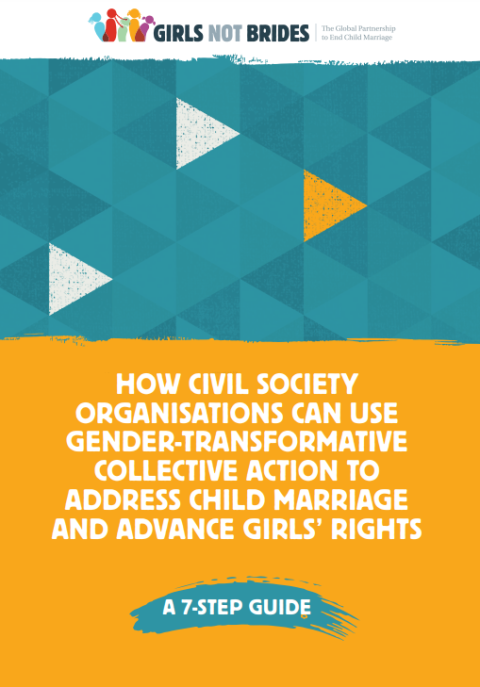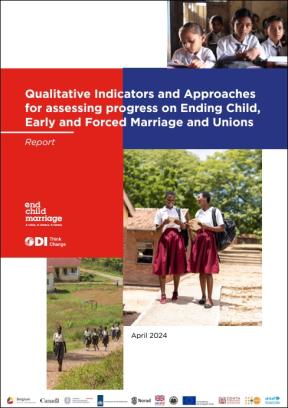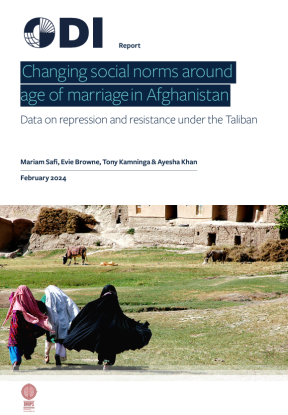- Toolkit
- 16 May 2023
How civil society organisations can use gender-transformative collective action to address child marriage and advance girls' rights: A 7-step guide
- Author: ESubden
- Published by: Girls Not Brides

This practical guide for civil society collectives to facilitate their gender-transformative journey includes 21 practical tools and templates, and clearly-displayed key terms, examples, guidance and resources.
Who this Guide is for
This 7-step facilitation guide (from here on “Guide”) recognises the unique role of civil society as a powerhouse for transformative change at national, global and community levels – in policies, laws, institutions, services and attitudes – to ensure girls and women know, and can exercise, their equal rights and agency, including if, when and whom to marry.
This Guide is for any group of civil society organisations (CSO) working collectively on child marriage at a national or sub-national level.
The processes and tools in this Guide were piloted in two African countries, with Girls Not Brides national collectives in Mozambique and Nigeria. This means a focus is given to Africa but there is strong crossover and relevance for CSOs working in other regions and on education, sexual and reproductive health and rights, gender-based violence, gender justice and minority rights more broadly.
What this Guide is for
The aim of this Guide is to catalyse higher impact through more intentional gender-transformative collective action – by employing gender-transformative approaches (GTAs).
Through a series of steps, it supports CSOs, as a collective, in strengthening their gender-transformative skills, knowledge and leadership to systematically analyse and address the root causes of gender inequality, both at the individual and a systems level.
It encourages workshop-based critical reflection and action planning to end child marriage. It leads participants – as individuals and as a collective – through a process of critical engagement with country-level evidence and experience-sharing. It supports them to question the unequal distribution of resources and relationships of power, particularly those rooted in gender norms that discriminate against girls and women.
- Tags:
- Child marriage
- Countries / Regions:
- Global
Related resources
Journal article
26 July 2024

Report
8 May 2024

Report
22 February 2024
